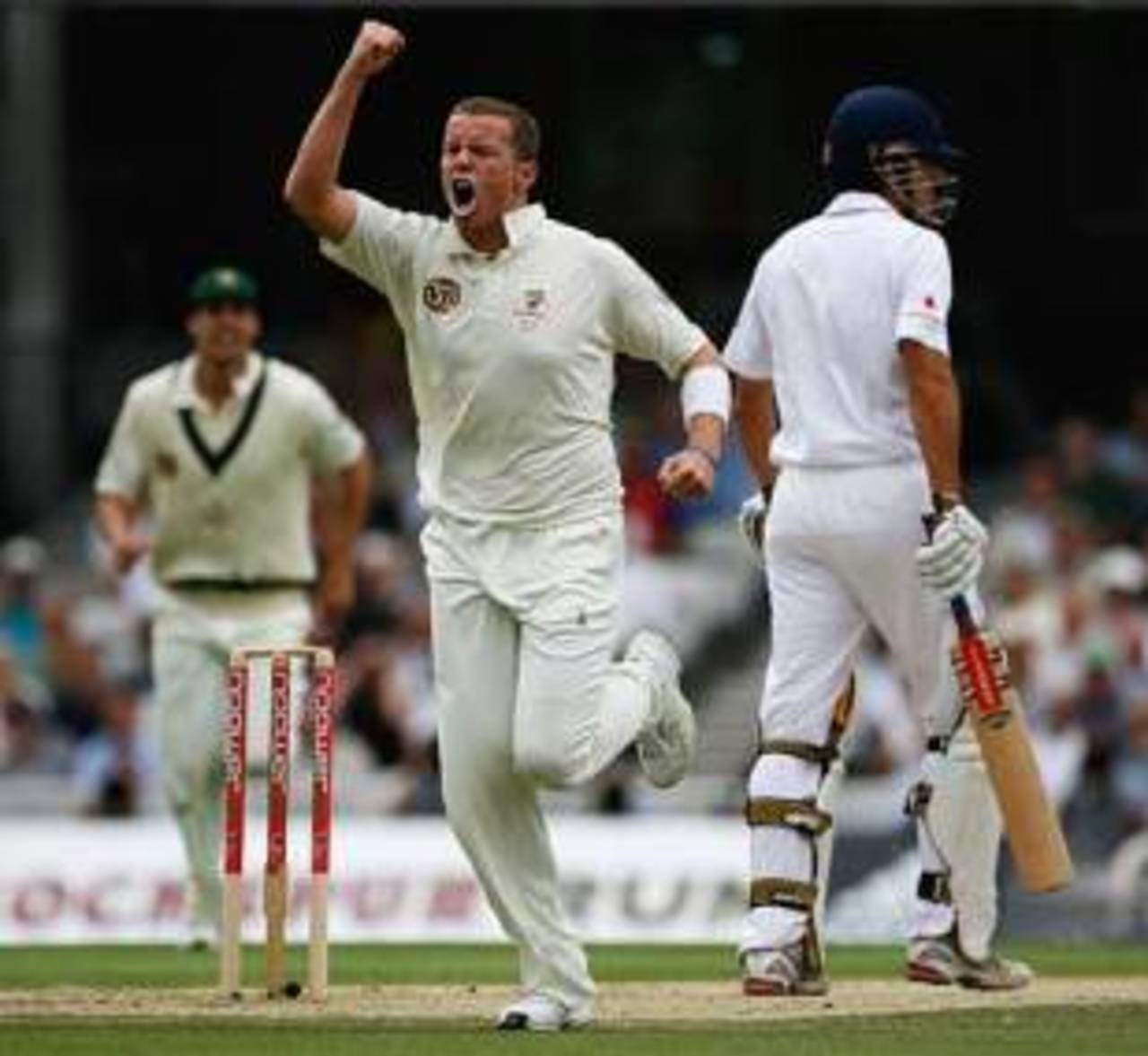It's time for Cricket Australia to bite the bullet and give all the national selectors a full-time job. After the 2-1 Ashes defeat it's necessary to examine the structures on and off the field and switching to this type of panel would make the national set-up even more professional.
The job carries a lot of work, too much for guys who have to juggle their other commitments. It's about 100 days a year of watching cricket, which doesn't sound like a lot to the lay person - and makes it seem like a dream position - but it involves loads of travelling interstate and overseas.
I don't see why Cricket Australia doesn't spend the money on them - they deserve it for the importance of their job. Cricket Australia put up millions of dollars for the players, but then have part-time selectors. It doesn't fit.
The current lot of Andrew Hilditch, David Boon, Jamie Cox and Merv Hughes all have other careers. Hilditch, the chairman, is one of the most organised people in the world - his work ethic is legendary: he's a lawyer, a chairman of selectors, a husband and a father - but he can only do so much. There's talk of one role becoming full-time and having talent identification people in each state, but that looks like cutting costs to me. They must go further to help the game at the top levels in this period of change.
I reckon it would be a fantastic job, one I'd certainly be interested in doing, if it was full-time. You could identify players, see all areas of their games, go to training sessions and follow them on tours. Once you'd done that you could report back with a thorough range of observations at the selection table. It's tough when things go wrong though, like they did in the fifth Test.
I can sympathise with them over their decision to play four fast bowlers at The Oval, but that doesn't cover up for everyone blatantly mis-reading the wicket. Nathan Hauritz, the offspiner, was desperately needed. That was costly, although the session of madness on the second day, when they lost 10 for 87, was where things really fell apart for Australia.
The next Test squad for Australia's series against West Indies in November will be fascinating. Stuart Clark might find it hard to force his way in and the selectors will have the same argument over whether to go with four quicks or three and a spinner. More tough decisions lie ahead, but that's a few months away, after the Ashes post-mortems.
Ricky Ponting always cops it when Australia lose, but he is one of the country's greatest ever captains and his record speaks for itself. He's led in 61 Tests and won 39 of them - two fewer than Steve Waugh - but is scrutinised a whole lot more. There were a few tactical mistakes during this series, but every captain is guilty of those. He also had to deal with a massive turnover of players and former internationals criticising him. Jeff Thomson saying he's a "crap" captain isn't constructive, especially when he doesn't give any reasons why.
My highlight of the series was the continued development of Peter Siddle and Ben Hilfenhaus. The only slight criticism of Hilfenhaus is that he can be so accurate and consistent that he can be a bit predictable. If he uses the crease more, coming wider on occasions, he will create some different angles and opportunities. Mitchell Johnson was very hot and cold this series, but I believe Johnson, Siddle and Hilfenhaus can be some of the greatest bowlers Australia have produced. Also, look out for Doug Bollinger, the left-armer from New South Wales, when they play at home.
Hauritz did well considering some of the flak he copped before the series, Marcus North showed the hallmarks of an excellent player as well as strong leadership skills, Michael Clarke was fantastic and Michael Hussey was fabulous in his final innings after his struggles. Shane Watson did well when he came in, but he has a serious technical flaw that results in lbws, while Phillip Hughes has to fine tune his play against the fast bowlers. Despite all the good signs, the Ashes will remain in England. Two bad days, one at Lord's and one at The Oval, cost them.
It won't be so easy for England when they visit in 2010-11. Australia are a different team at home and will start favourites because of their local advantage. There's nothing worse than losing to the Poms, so the Aussies will hit back. Bring it on.
Jason Gillespie is sixth on Australia's list of Test wicket-takers with 259 in 71 matches. He will write for Cricinfo through the 2009 Ashes
